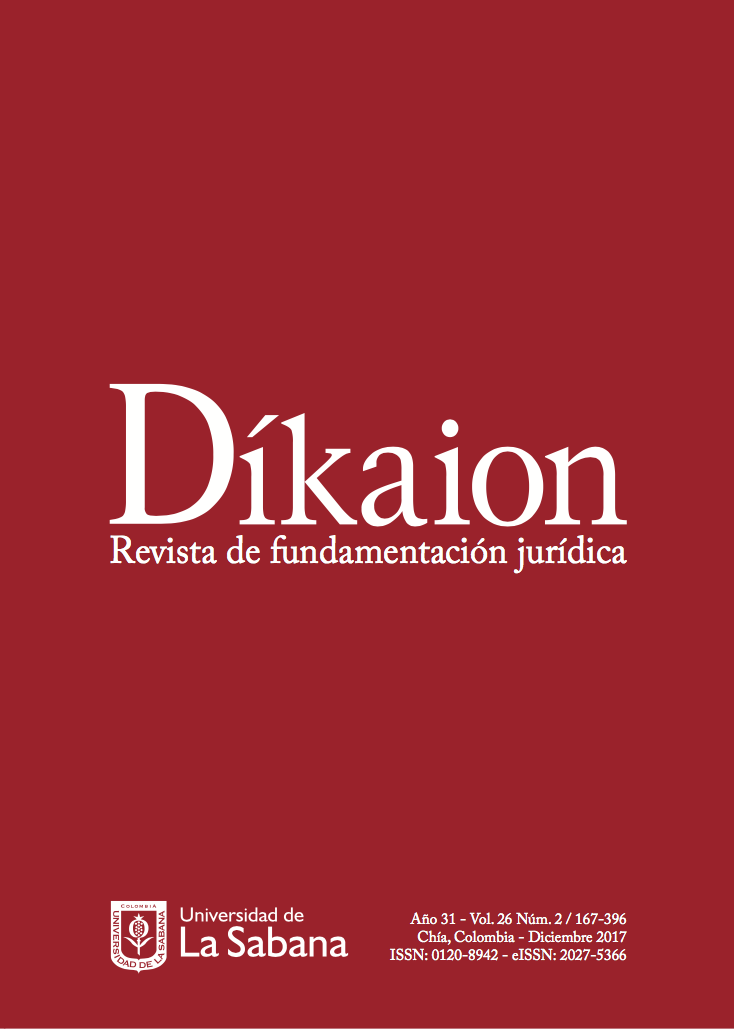Thomistic ius naturalism of the twentieth century in the united states
Keywords:
Natural Law, New Natural Law, Natural Rights, United States of AmericaAbstract
In this article, the authors present an overview of Thomistic ius natura- lism in the philosophical-juridical doctrine of the United States, from the beginning of the 20th century to the present day. It is conceived as a wor- king tool for any student of contemporary natural law, a sort of "state of the art" on the matter. There are three clearly differentiated parts. In the first (paragraphs 1 to 7), which is the most extensive, a basic conceptual distinction is made between the tradition of natural law (Natural Law Tra- dition) and the tradition of natural rights (Natural Rights Tradition). Each of the most representative authors are examined, and the current debate between the “neoclassics” (Grisez, Finnis, George) and the "neoscholastics (Veatch, McInerny, Hittinger, Long, Jensen, etc.) is described. The second part (section 8) looks the congresses or periodic conferences that are now taking place in the United States to discuss issues related to natural law, while the third part (section 9) offers a selection of texts the authors of the article believe to be particularly relevant to North American ius naturalism in the twentieth century.Downloads
Download data is not yet available.
Downloads
Published
2017-10-11
How to Cite
Poole, D. (2017). Thomistic ius naturalism of the twentieth century in the united states. Díkaion, 26(2). Retrieved from https://dikaion.unisabana.edu.co/index.php/dikaion/article/view/7825
Issue
Section
Articles
License
1. Proposed Policy for Journals That Offer Open Access
Authors who publish with this journal agree to the following terms:
This journal and its papers are published with the Creative Commons License Attribution-NonCommercial-NoDerivatives 4.0 International (CC BY-NC-ND 4.0). You are free to share copy and redistribute the material in any medium or format if you: give appropriate credit, provide a link to the license, and indicate if changes were made; don’t use our material for commercial purposes; don’t remix, transform, or build upon the material.






